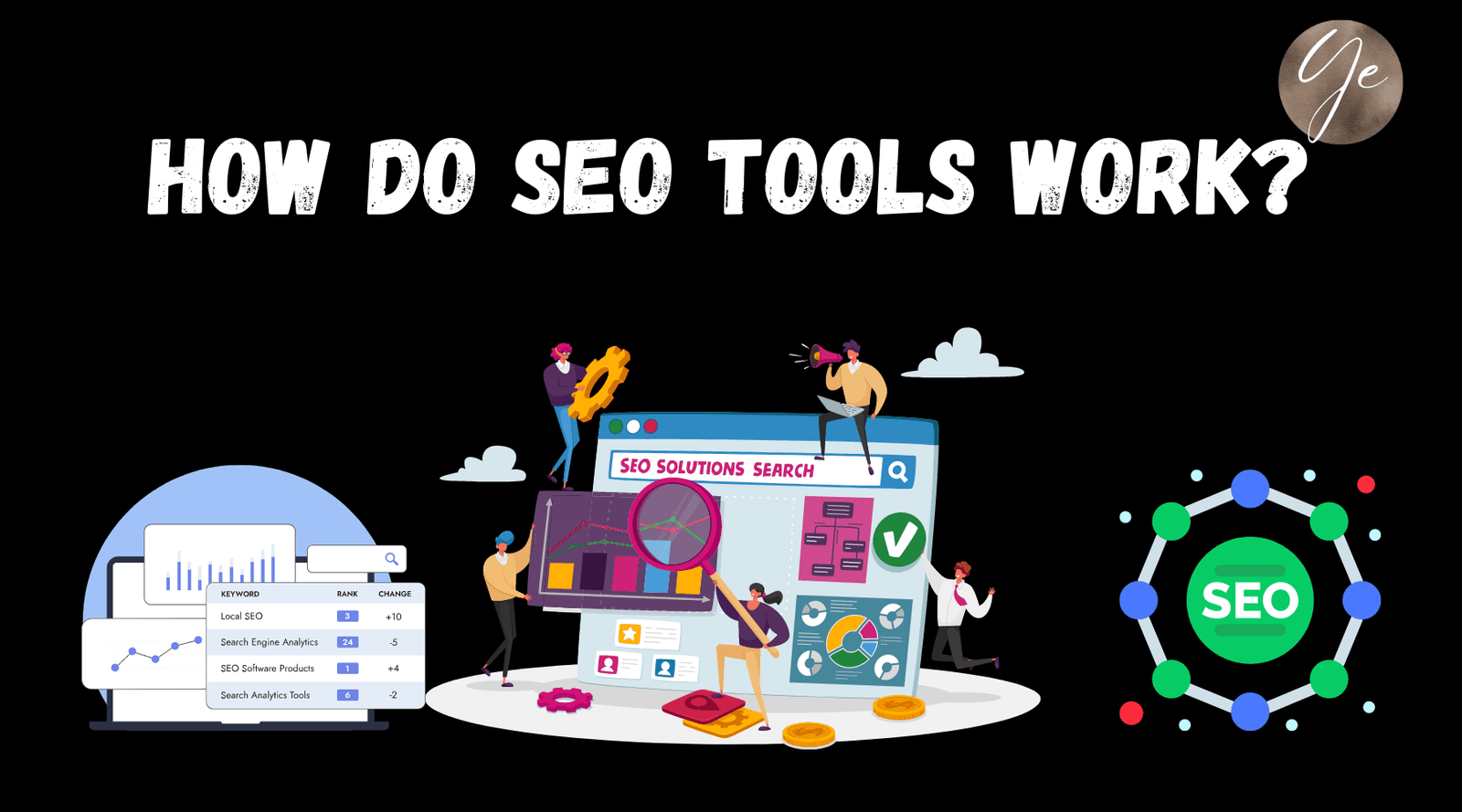In today’s digital landscape, SEO tools are indispensable for businesses looking to boost their visibility and stay competitive. But how do these tools work behind the scenes to drive organic traffic and improve search rankings? Let’s dive into the core functions and benefits of using SEO tools and how they can elevate your online presence.
What Are SEO Tools and Why Do They Matter?
SEO tools analyze various aspects of your website, from keyword performance to backlink quality. Over 93% of top-ranking websites use them to optimize their content. These tools provide actionable insights, helping businesses stay ahead in the ever-evolving digital industry.
By understanding the mechanics behind SEO tools, you not only demystify the optimization process but also empower yourself to make data-driven decisions. With the right tools, your website can meet search engine standards and reach your target audience effectively.
Overview of SEO Tools
SEO tools enhance a website’s performance in search engine results by analyzing and optimizing various elements. They help improve visibility, drive traffic, and provide critical insights into issues that may affect your site’s ranking. Let’s explore the key features and how each helps improve SEO.
SEO Audits and Diagnostics
SEO audit tools, such as SEOptimer, Screaming Frog, and Ahrefs Webmaster Tools, evaluate a website for SEO-related problems. They detect technical issues like broken links, HTTP header errors, and JavaScript rendering problems. By generating detailed reports and exact recommendations, these tools help you ensure that your site meets search engine standards.
Actionable Tip: Run regular audits with tools like Screaming Frog to detect and fix issues like duplicate content and slow page speeds, which can hinder both user experience and rankings.
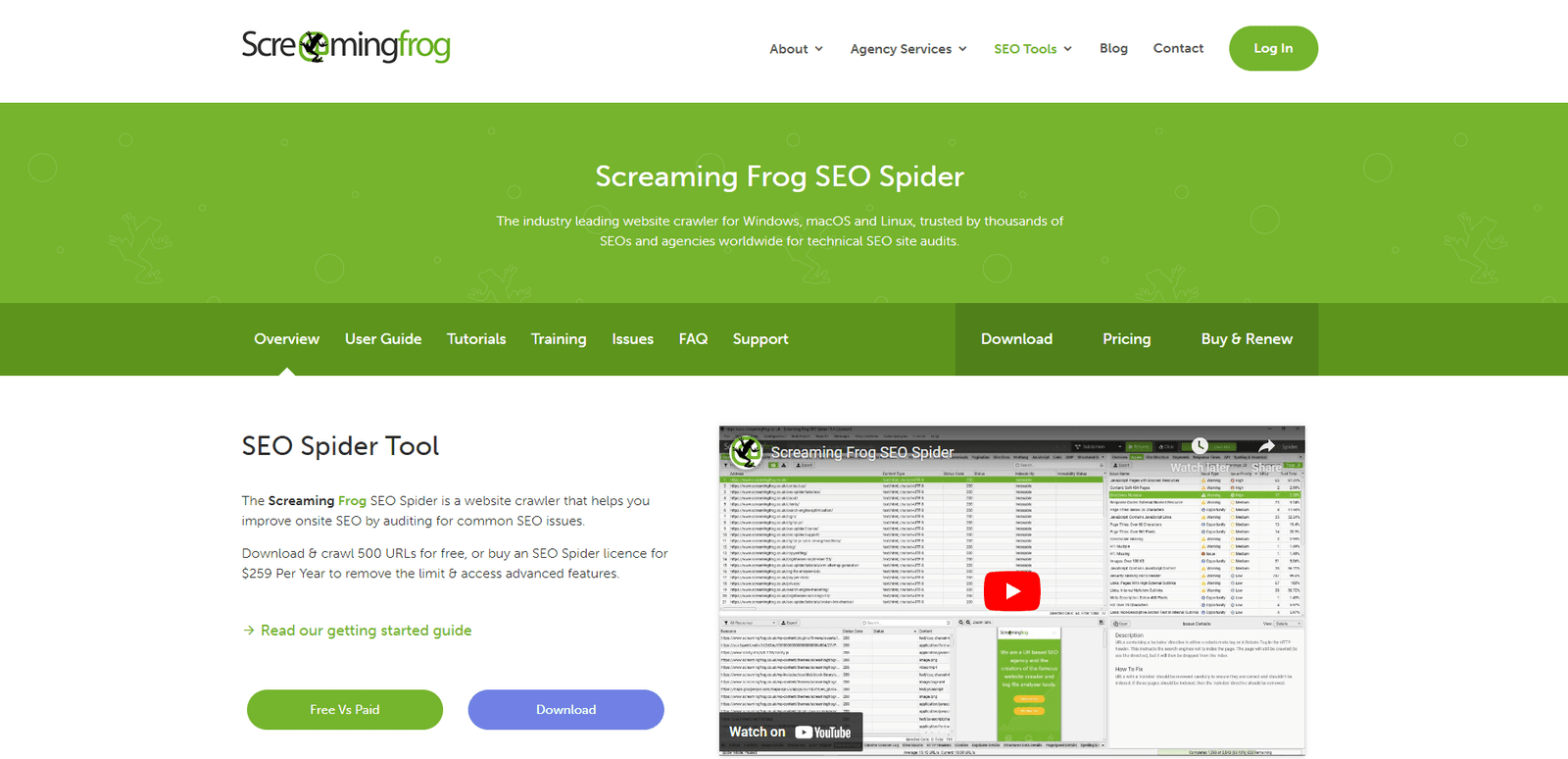
Rank Tracking and Keyword Analysis
Rank tracking and keyword analysis tools like Semrush and Ahrefs monitor your website’s position in search engine results. They provide insights into keyword performance, search trends, and ranking dynamics through features like keyword gap analysis and SERP trends.
For example, targeting long-tail keywords can increase organic traffic by up to 30%. Semrush reports these keywords can often be overlooked but hold significant potential.
Actionable Tip: Use Semrush or Ahrefs to discover long-tail keywords related to your niche and update your content accordingly to tap into this extra traffic.

Backlink Analysis and Management
Backlinks play a critical role in determining your site’s authority. Backlink analysis tools, such as Moz and Ahrefs, examine the quality and quantity of backlinks pointing to your site. They help identify valuable backlinks and spot toxic ones that could harm your SEO.
For instance, websites with strong backlink profiles can see a 50% improvement in search engine rankings.
Actionable Tip: Use Moz to regularly audit your backlink profile and disavow any harmful links that may hurt your SEO.
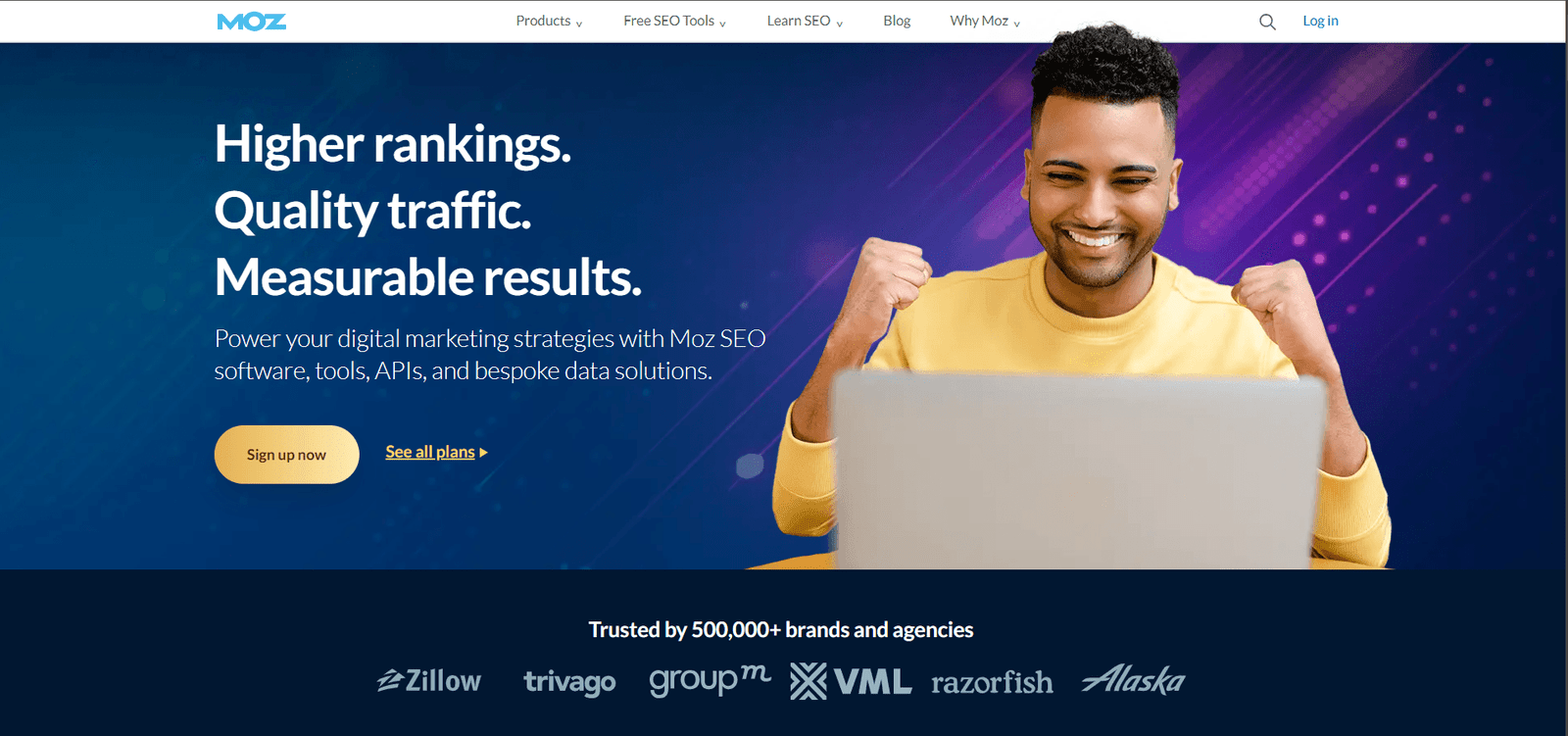
Content Optimization
Creating high-quality content is essential for SEO, and content optimization tools like Yoast SEO and Clearscope help refine that content. They assess keyword usage, readability, and SEO-friendliness. These tools also ensure that titles, headers, and images are fully optimized for search engines and user experience.
Actionable Tip: Utilize Yoast’s readability suggestions and SEO analysis to make your content easier to read while improving its ranking potential.

Competitor Analysis
Staying ahead of the competition is crucial. Competitor analysis tools like SpyFu and SimilarWeb allow you to study competitors’ SEO strategies, including their top-performing keywords, backlink profiles, and traffic sources. This information can help you identify gaps in your strategy and discover new opportunities to outperform them in search rankings.
Actionable Tip: SpyFu’s competitive analysis can reveal which keywords drive traffic to your competitors’ sites. Incorporate those keywords into your strategy to boost your own rankings.
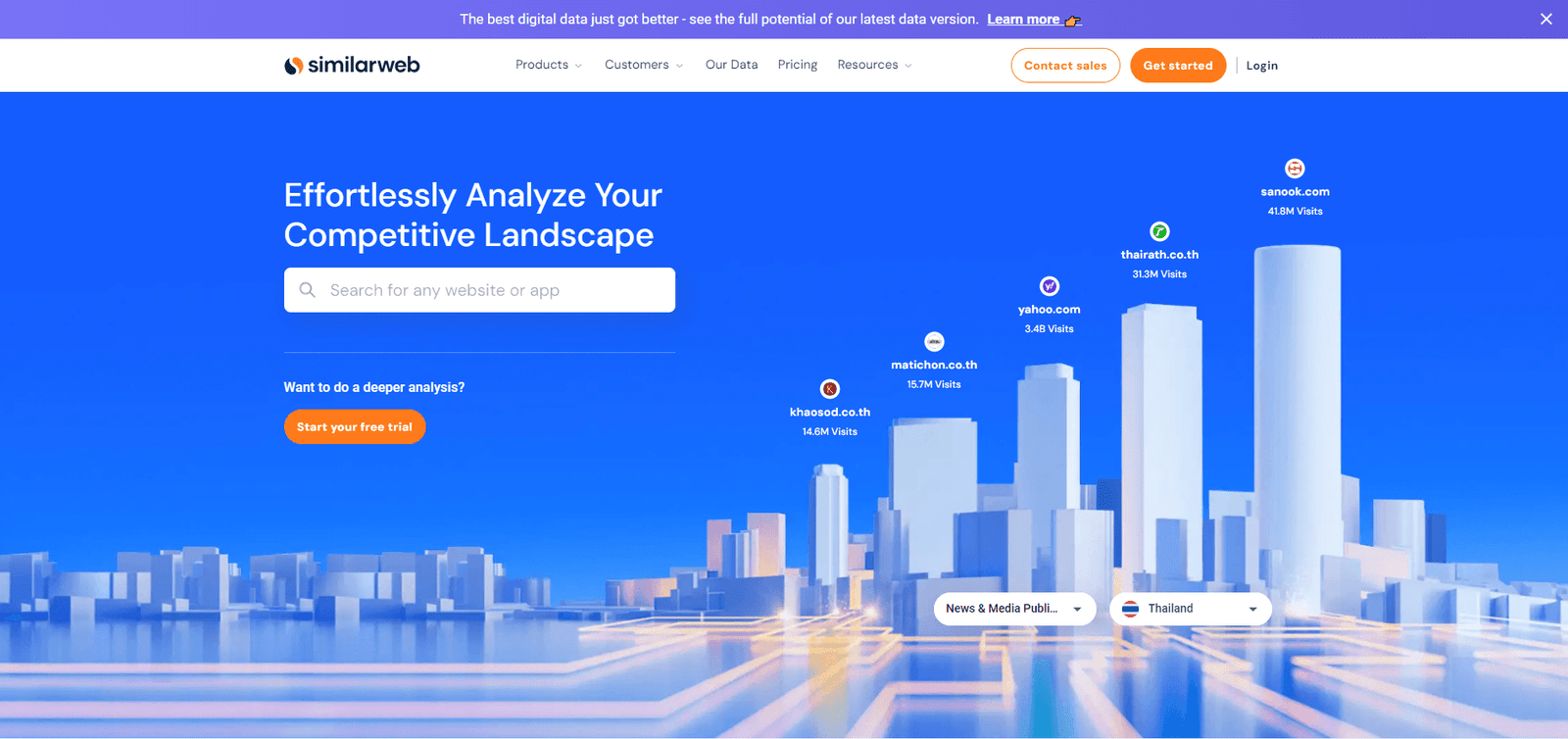
Performance Monitoring
Tracking your website’s performance is essential to understanding the impact of your SEO efforts. Performance monitoring tools like Google Analytics and Google Search Console provide real-time data on metrics like traffic, bounce rates, and conversions. This allows you to make timely adjustments to your SEO strategies.
Actionable Tip: Set up Google Search Console to track keyword impressions and click-through rates. Use the data to adjust meta titles and descriptions for improved engagement.
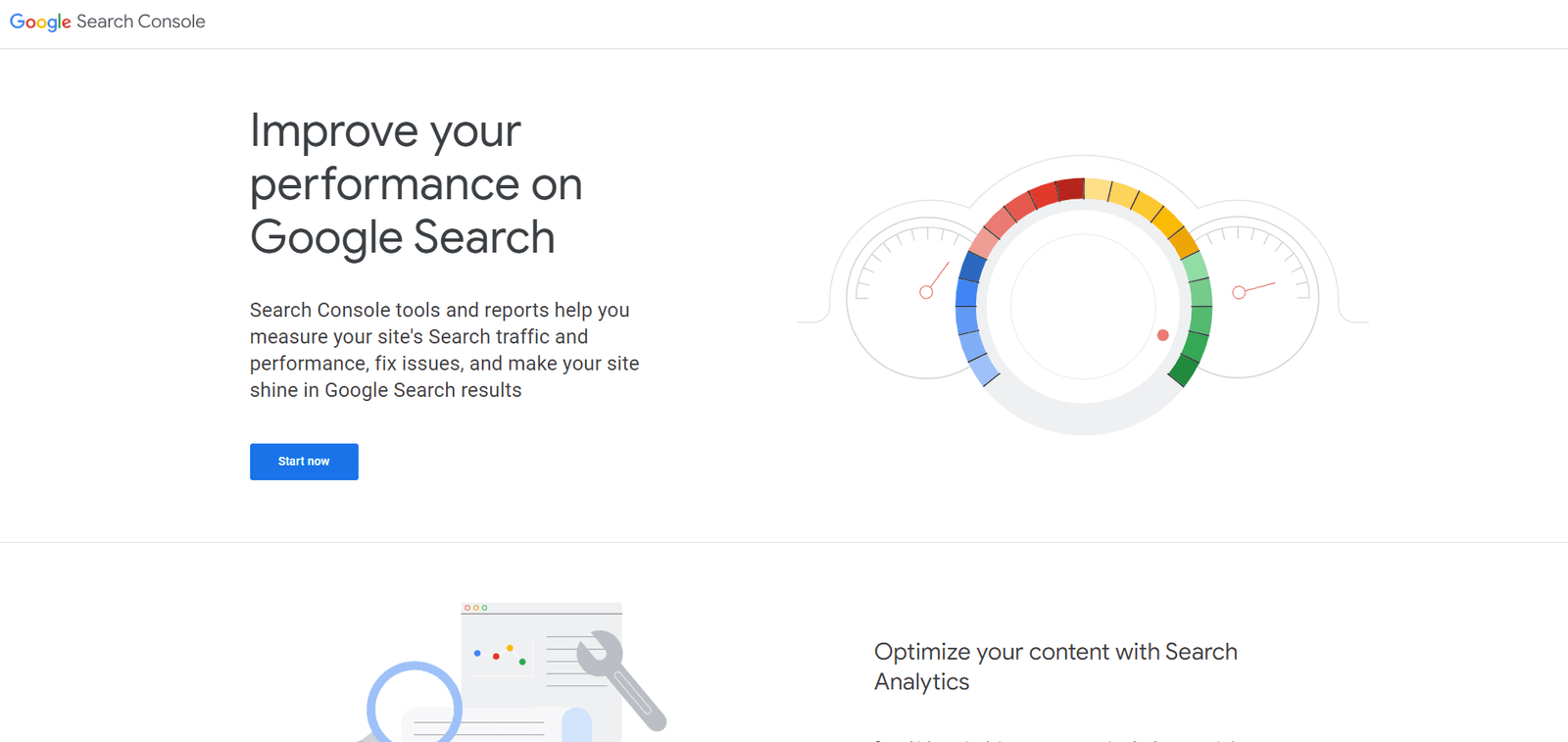
Key Features of SEO Tools
1. Keyword Research
Keyword research identifies popular and relevant search terms that users are searching for online. Tools like Ahrefs and Semrush analyze search volume, keyword difficulty, and user intent. Google Trends also helps by showing keyword popularity over time, allowing you to align your strategy with current trends.
2. On-Page Optimization
On-page optimization focuses on improving individual web pages to rank higher in search results. Tools like Yoast SEO evaluate keyword usage, meta tags, and content readability. Optimizing your meta descriptions can increase click-through rates by up to 20%.
3. Backlink Analysis
Backlink analysis is essential for understanding your site’s authority. Tools like Moz evaluate your backlink profile, highlighting valuable and harmful links. Websites with a strong backlink profile can see up to a 50% improvement in search rankings.
How SEO Tools Collect and Utilize Data
1. Web Crawling
SEO tools like Screaming Frog use web crawlers to scan your website and identify technical issues. Similar to Google’s search bots, these crawlers detect HTTP header errors, broken links, and other issues that affect your site’s ranking.
2. Data Aggregation
Data aggregation combines information from multiple sources, such as web crawlers, keyword databases, and backlink profiles, to provide a full picture of your website’s SEO health. Tools like Semrush and Ahrefs excel in combining these datasets for better decision-making.
Types of SEO Tools
1. All-in-One SEO Suites
Comprehensive platforms like Ahrefs, SEMrush, and seoClarity cover all aspects of SEO, including keyword research, rank tracking, and content optimization. These all-in-one suites simplify the SEO process by combining multiple tools into one platform, saving time and improving efficiency.
Example: Use SEMrush to audit your site, track keyword performance, and analyze competitors—all from one platform.
2. Niche Specific Tools
Niche-specific tools focus on exact SEO needs. For example, Yoast SEO helps with content optimization, Screaming Frog specializes in technical audits, and SpyFu focuses on competitor analysis.
Example: For technical SEO audits, Screaming Frog’s ability to uncover crawl errors and other hidden issues makes it a must-have for any website looking to boost rankings.
My final thoughts on SEO tools
SEO tools are a game changer when it comes to improving your website’s visibility on search engines. Tools like Ahrefs and SEMrush are great at pinpointing those high-potential keywords that can really drive up your organic traffic—sometimes by as much as 30%. Then, there are SEO audit tools like Screaming Frog that help ensure your site is search engine-friendly by flagging any issues you need to fix.
Backlinks are another big deal, and tools like Moz can help you build a solid backlink profile, which could boost your rankings by up to 50%. And of course, you can’t forget performance monitoring tools like Google Analytics. They give you the data you need to adjust your strategy in real time. By using a mix of these tools, you can continuously optimise your website and keep growing your online presence.
Frequently Asked Questions about SEO tools
What types of SEO tools are available?
There are several types of SEO tools, including SEO audit tools (e.g., SEOptimer, Screaming Frog) for technical analysis, rank tracking and keyword analysis tools (e.g., Semrush, Ahrefs) for monitoring search positions, backlink analysis tools (e.g., Moz, Ahrefs) for assessing link quality, content optimization tools (e.g., Yoast SEO) for enhancing content, competitor analysis tools (e.g., SpyFu) for studying rivals, and performance monitoring tools (e.g., Google Analytics) for tracking website traffic and user behavior.
How do SEO audit tools improve website rankings?
SEO audit tools identify technical issues that may hinder a website’s ranking, such as broken links, slow page speeds, and improper keyword usage. By addressing these problems, websites become more search engine friendly, leading to better visibility and higher rankings in search results.
What benefits do keyword research tools provide?
Keyword research tools like Ahrefs and Semrush help identify popular and relevant search terms. By targeting the right keywords, especially long-tail variations, websites can increase their organic traffic by up to 30%. These tools also provide insights into keyword performance and competition, aiding in effective content strategy.
How do backlink analysis tools enhance site authority?
Backlink analysis tools evaluate the quality and quantity of incoming links to a website. A strong backlink profile from reputable sources can significantly boost a site’s authority and improve search engine rankings by up to 50%. These tools also help manage and disavow harmful backlinks that could negatively impact SEO.
What is the role of content optimization tools in SEO?
Content optimization tools like Yoast SEO analyze website content for keyword usage, readability, and technical issues. They provide recommendations to improve on-page SEO, ensuring content is both user-friendly and search engine optimized, which enhances visibility and engagement.
How do competitor analysis tools benefit SEO strategies?
Competitor analysis tools such as SpyFu allow users to study their competitors’ SEO strategies, including their keywords, backlinks, and content performance. Understanding competitors’ tactics reveals opportunities to improve one’s own SEO efforts and achieve higher rankings.
What features make SEO tools effective for improving search performance?
Effective SEO tools offer features like keyword research to identify valuable search terms, on-page optimization to refine website content, and backlink analysis to strengthen link profiles. These features provide actionable data and insights, enabling users to optimize various aspects of their SEO strategies for better search engine performance.
Should I use all-in-one SEO suites or specialized tools?
Choosing between all-in-one SEO suites and specialized tools depends on your needs. All-in-one suites like Ahrefs and SEMrush offer a wide range of features for managing multiple SEO tasks efficiently. In contrast, specialized tools focus on specific areas, such as Yoast SEO for content optimization or Screaming Frog for technical audits, providing in-depth functionality tailored to particular aspects of SEO.

